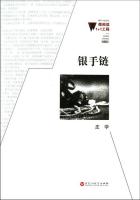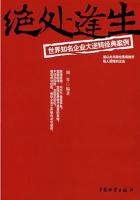So far we have what seems to be the logical and consistent result of the individualist view.But Mill,though he remains an 'individualist'philosophically,is also led to conclusions very far from the ordinary individualist theory.The last part of his treatise is devoted to a discussion of the limits of government interference.He urges energetically that there should be some space in human 'existence entrenched round and sacred from authoritative intrusion,'(139)a doctrine inherited from his teachers and eloquently expanded in his Liberty.It marks the point of transition from his economic to his ethical and political teaching.After repeating the ordinary arguments against excessive interference by way of protection,usury laws and the like,he states as a general principle that the burden of proof is on the advocates of interference,and that 'letting alone should be the general practice.'(140)All coercion,as Bentham had said,is an evil,but,in certain cases,it is the least possible evil;and Mill,as becomes an empiricist,declining to lay down an absolute rule,only asks what are the particular cases in which the evil is over-balanced by the good of interference.But,here,if we consider the list of exceptions,we must admit that the general principle is remarkably flexible.Some cases have been already noticed.Mill not only allowed but strongly advocated a national system of education.(141)He approved a great national scheme of emigration (142)and a scheme for home colonisation,and this expressly with a view to lifting the poor,not gradually but immediately into a higher level of comfort.He held that laws in restraint of imprudent marriage were not wrong in principle,though they might be inexpedient under many or most circumstances.He approved of measures tending to equalisation of wealth.He proposed that the right of bequest should be limited by forbidding any one to acquire more than a certain sum,and so counteracting the tendency to the accumulation of large fortunes.(143)He held that government should take measures for alleviating the sufferings of labourers displaced by new inventions or the excessive change of 'circulating',into 'fixed capital.'(144)He not only approved of measures for forming a peasant-proprietary,but,in his last years,became president of an association for altering the whole system of land tenure.He thought that government should retain a property in canals and railways,though the working should be leased to private companies.He approved,as I have said,of the poor-law in its new form.The factory legislation alone was still uncongenial to his principles,though on moral grounds he accept the protection of children.Even in this direction he incidentally makes a remarkable concession.A point to which political economists had not,he thinks,sufficiently attended is illustrated by the case of the 'Nine Hours Bill.'(145)Assuming,though only for the sake of argument,that a reduction of labour hours from ten to nine would be to the advantage of the workmen,should the law,he asks,interfere to enforce reduction?The do-nothing party would reply,No;because if beneficial,the workmen would adopt the rule spontaneously.This answer,says Mill,is inconclusive.The interest of the individual would be opposed to the interest of the 'class collectively.'Competition might enforce the longer hours;and thus classes may need the assistance of the law,to give effect to their deliberate collective opinion of their own interest.'Here again Mill seems to be admitting as an 'exception'a principle which goes much further than he observed.
He is mainly interested by the ethical problem,Is it ever right to force a man to act against his own wishes in a matter primarily concerning himself alone?He concludes that it may be right,because each man may wish for a rule on condition that every one else obeys it.In that case,the law only gives effect to the universal desire.But the argument really involves an exception to the beneficent action of competition.The case is one in which,upon his assumptions,free competition of individuals may lead to degeneration instead of a better development.In such cases,it is possible that association,enforced by law,may lead to benefits unattainable by the independent units.This admission would go far in the Socialist direction.It would justify the principle of 'collective bargaining'to sanction the collective interests.In the same way his justification of the factory acts in the case of children leads beyond the moral to economic grounds.Mill's view,so far as he goes,would fall in with the opinion that there was here a necessary conflict between Christian morality and political economy;or the admission that economic loss must be incurred for moral considerations.But,in the long run,the two views coincide;for practices which stint and degrade the breed must be ultimately fatal to economic efficiency.As was often said at the time,to forbid interference for economic reasons was to suppose that the country could only flourish by treating children as it might conceivably be necessary to treat them under stress of some deadly and imminent peril.When economists looked beyond the instantaneous advantage of the market,and remembered that children were made of flesh and blood,it was obvious that on the purest economic grounds,a system which implied the degradation of the labourer must be in the end pernicious to every interest.
In this case,therefore,the interference of the law was desirable from the economic as well as from the moral point of view.















